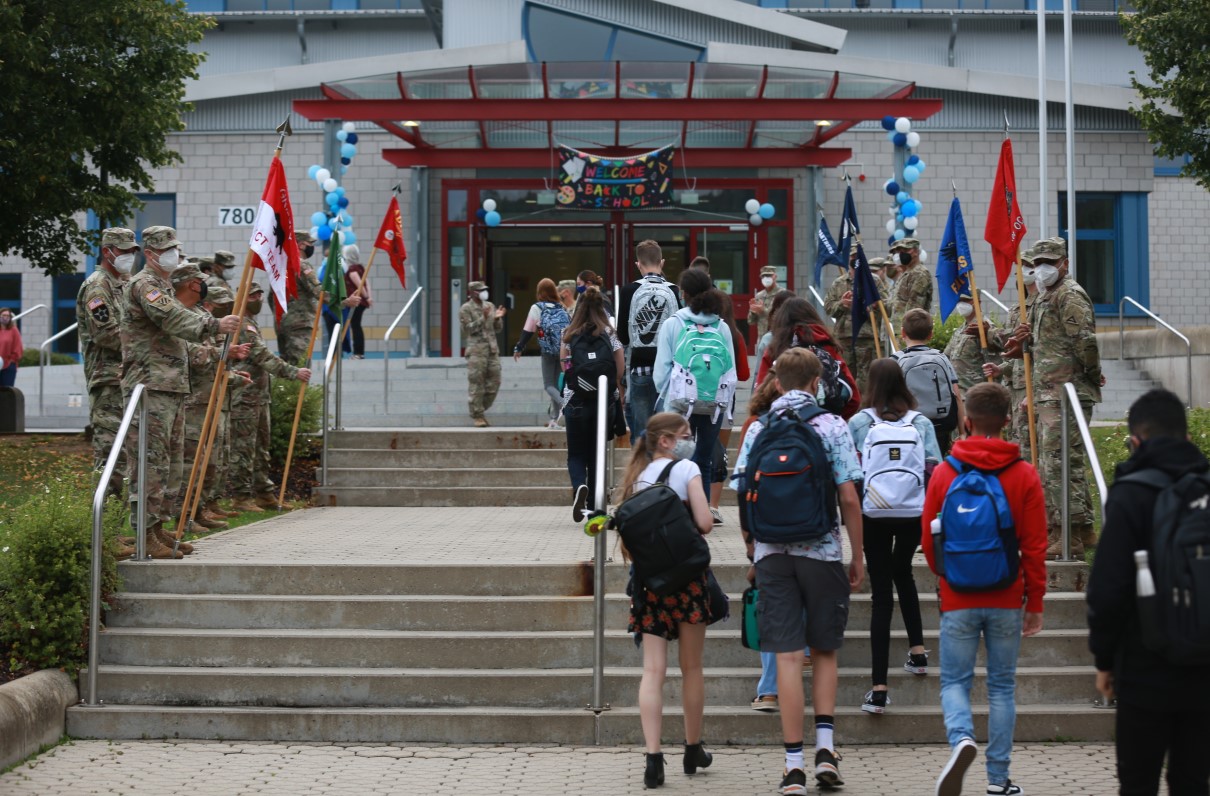This article by Matthew M. Burke originally appeared on Stripes.com. Stars and Stripes serves the U.S. military community by providing editorially independent news and information around the world.
TORII STATION, Okinawa — A move to place students with learning disabilities into general education classrooms is already underway and will be completed by next school year, a Department of Defense Education Activity spokesman said Tuesday.
The changes will apply to approximately 480 of DODEA’s 7,485 special education students in grades six through 12, primarily in math and English language arts classes in DODEA schools worldwide, Will Griffin told Stars and Stripes.
He did not have a breakdown of where these students fall on the spectrum of disabilities, which ranges from mild to severe, but said schools would base their decisions on individual needs.
Students will continue to have access to differentiated, direct instruction from a special education teacher who will co-teach and collaborate with general education staff, Griffin said.
[RELATED: Watchdog: Gaps in Exceptional Family Member Program May Affect Readiness]
The biggest changes will mean a loss of dedicated classrooms, new schedules and a more structured environment.
The decision “was very much a collaborative effort between our education and curriculum folks and our student services team to look at current research and look at what is the best way forward to ensure that all of our students have access to rigorous instruction,” Griffin said.
DODEA plans to have adequate supports in place to ensure there’s meaningful instruction that contributes to student achievement goals, he said.
Some schools in Germany have already begun the transition, Griffin said.
[RELATED: Child Care Fees Plunge for Many Military Families Under New DoD Rate Setup]
Student performance data to determine whether the move is successful won’t be available until at least the end of the school year in June.
DODEA operates 160 accredited schools for eligible children on U.S. military bases worldwide.
Some parents were stunned Friday when Stars and Stripes reported DODEA’s intent to move some children with disabilities out of dedicated classes and into general education.
Jetta Allen, an Army spouse at Camp Humphreys in South Korea and mother to a 12-year-old with autism, said the plan runs afoul of the Individuals with Disabilities Education Act, or IDEA. Allen, a certified special education teacher not employed by DODEA, is founder of the advocacy group Humphreys Diverse Abilities Support Group.
[RELATED: 5 Top Concerns of Army Families, and What the Service Plans to Do About Them]
IDEA guarantees a free appropriate public education as well as special education and related services for eligible children with learning disabilities.
The act prohibits predetermination, which occurs when a school or other education agency makes decisions about a special education student before the student receives an Individualized Education Program, or IEP. Each special education student receives an individualized IEP to guide their level of support and services.
Each student’s individualized program forms the basis for placement decisions.
Child placement must be individually determined according to the child’s abilities and needs, and not solely on the type or significance of a disability, the significance of a disability or the availability of special education services and other factors, according to federal regulations.
[RELATED: Another Delay for Private Takeover of Military Household Goods Shipments]
DODEA’s plan to mainstream nearly 500 special education students is predetermination by design, Allen said by phone Monday. “By design, they’re not having these options available. By design, we’re trying to fit these kids in a box.”
In response, Griffin said the students’ individual needs will be placed first and foremost.
Staff will ensure students receive the different components and support by special education teachers throughout the school day. The move is supported by research, he said.
Students who spend 80% more time in inclusive classrooms fare better at reading and math than peers in special education classrooms, according to a study by Indiana University researchers. Their findings were released in May in the Journal of Special Education.
The students appeared to be more prepared for successful post-secondary education and employment, the study said.
DODEA plans to monitor student performance by looking at “formative and summative assessment results” and seeking feedback from stakeholders, Griffin said. It also plans to monitor students’ social and emotional needs.
Making a Difference in Military Life
Military spouse blogger Mrs. Navy Mama shares her support of MOAA’s efforts to help military families and how you can get involved.
